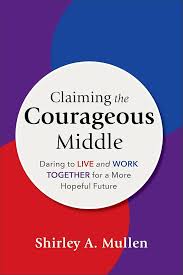“We each have our own truth.”
You’ve probably heard that or something like it for years. We can’t determine absolute right or wrong, it is said, and we certainly shouldn’t try to impose our view on anyone else. Instead, let’s be tolerant of each other, and give everyone space.
Christians often see a major problem with viewpoints like this, sometimes called relativism, because we believe God revealed himself and his truth through Scripture and through Jesus who is “the way, the truth, and the life.” As a result, we can know right from wrong.

If people could just get on board with there being a way to know truth, wouldn’t we all be better off? We certainly don’t need a jumble of different viewpoints confusing the landscape. Right?
This way of thinking, however, may miss something valuable. It’s wrong to say that valuing different opinions means we can never find the truth. Rather, valuing different opinions is one of the best ways to arrive at the truth.
Why is that so? Other people probably know things and can see things we don’t. After all, we are finite. Therefore, humility is a virtue.
In addition, because “the heart is deceitful above all things,” we may fool ourselves into thinking we only have the best intentions in voicing our beliefs. We may unknowingly be acting and speaking from less than honorable motivations. Therefore, once again, humility is a virtue.
As Shirley A. Mullen has written in her much needed book, Claiming the Courageous Middle, “Allowing a measure of legitimacy for diverse opinions is, in the long run, not at all necessarily giving way to relativism. Rather, it can be part of an ultimate commitment to the truth, as society makes space for an appropriate exchange of ideas within the circle of its larger commitments.”*
If we always think we are right, we’ll miss the truth. If we are willing to admit that we may sometimes be wrong (which realistically is not hard to imagine for any of us), we then have a better chance of arriving at what is good, true, and beautiful.
Because iron sharpens iron, because we all need each other, Mullen goes on to say, “We often need the animating challenge of dissent to keep us thinking at our best and to keep pushing us toward new possibilities.”* Rather than trying to suppress contrary opinions, we are better together.
If we can’t know everything and yet care about the truth, we will say, “Relativism, no. Pluralism, yes.”
* Shirley Mullen, Claiming the Courageous Middle (Grand Rapids, MI: Baker Academic, 2024), pp. 127, 133.
Image by Mirosław i Joanna Bucholc from Pixabay

